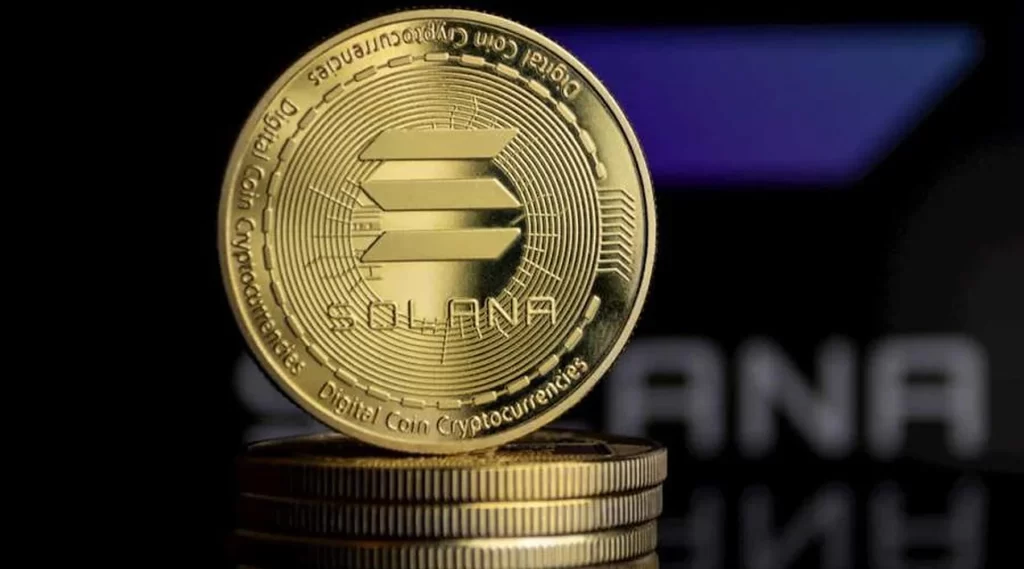Potential inertia in the price of Bitcoin following the Bitcoin halving could destabilise the share prices of high-cost public miners in the United States, potentially compelling some to relocate overseas.
“We might see a mining stock bloodbath as investors realise these companies are barely making money,” says Jaran Mellerud, founder and chief mining strategist of Hashlabs Mining, alluding to the potential outcome if the Bitcoin price fails to experience a significant rise after the halving.
Mellerud is currently observing the three to four-month period post-halving to gauge the impact on miner profitability due to the reduction in block rewards.
The upcoming Bitcoin halving is anticipated to take place on April 24, according to CoinMarketCap.
It will decrease Bitcoin miner rewards from 6.25 BTC (£234,750) to 3.125 BTC (£117,375), although historical trends suggest a subsequent surge in the Bitcoin price.
During the last halving event on May 11, 2020, Bitcoin was valued at $8,750 and experienced a staggering 430% increase five months later in October, soaring from $11,500 to $61,300 by mid-March 2021.
However, if Bitcoin fails to rally significantly within that three to four-month timeframe, “a significant portion of the network might need to power down their machines, particularly those paying hosting rates of $0.07 per kWh or more,” Mellerud noted, highlighting a notable concentration of these inefficient miners in the United States.
Consequently, Mellerud anticipates a shift in some of Bitcoin’s hash rate from the U.S. to countries with lower electricity rates, particularly in Africa and Latin America.
“My company, Hashlabs, is currently witnessing substantial demand from US-based miners who wish to relocate their machines to Ethiopia, where hosting rates are 30-40% lower than in the United States.”
Concerns regarding profitability surfaced in late January when Cantor Fitzgerald reported that 11 publicly listed Bitcoin miners would not be profitable post-halving if Bitcoin’s price remained around $40,000 (the price of Bitcoin at the time).
Cantor Fitzgerald’s “all in per coin” metric encompasses the total costs a Bitcoin miner would incur in producing a single Bitcoin, encompassing electricity costs, hosting fees, and other expenses.
READ MORE: Solana NFT Sales Skyrocket to Over £5 Billion, Setting New Record High
Nonetheless, with Bitcoin’s price currently standing at $51,000, only four of the 13 mining firms fall below the profitability threshold.
However, head analyst at Bitcoin mining firm Blockware Solutions, Mitchell Askew, informed Cointelegraph that most U.S. public miners would maintain profitability, especially those that invested in more efficient machines during the bear market.
Askew refuted Mellerud’s claim that most inefficient miners are based in the U.S., asserting that they constitute only a small fraction of Bitcoin’s total hash rate, making any hash rate loss negligible.
Nevertheless, even in the event of unprofitability, Askew outlined several reasons preventing U.S. miners from relocating overseas.
“[Many of them] are bound by fixed hosting contracts and must continue mining regardless of profitability,” while others mine primarily to accumulate non-Know Your Customer Bitcoin and are less concerned with profitability, according to Askew.
Mellerud identified Ethiopia, Nigeria, and Kenya as the most promising African countries to attract a larger share of the hash rate in the event of a mining migration.
Mellerud particularly highlighted Ethiopia’s “massive hydropower surplus” and the influx of Chinese miners as factors contributing to its appeal, projecting the African nation to capture 5–10% of Bitcoin’s total hash rate over the next few years.
Meanwhile, Mellerud identified Argentina and Paraguay as the most promising mining destinations in South America.
The decentralised application (DApp) platform Avalanche encountered a significant technical disruption affecting the block production of its proof-of-stake (PoS) blockchain.
At 12:02:27 pm UTC on February 23rd, Avalanche’s primary network experienced block production issues, seemingly bringing the network to a halt.
Avalanche’s blockchain explorer indicated that the last block on Avalanche’s P-Chain, X-Chain, and C-chain subnets was produced over an hour earlier.
An official alert concerning the block finalisation stall was also issued by Avalanche. In a status update, Avalanche stated:
“Developers across the community are presently investigating a stall in block finalisation that is preventing blocks from being accepted on the Primary Network.”
Block production is a crucial process for the stability and continuity of blockchain networks, involving the creation of new blocks that validate and record transactions.
Disruptions in this process lead to transaction processing delays, impacting the network’s overall functionality.
In a post on X, Kevin Sekniqi, co-founder of Ava Labs, mentioned that the team is already looking into the issue.
READ MORE: Bitcoin Prepares for Pre-Halving Pullback Amidst Uncertain Timing
According to Sekniqi, the block production halt might be linked to a “new inscription wave” launched an hour before the issues arose.
The Ava Labs executive suggested that the problem could be an “esoteric bug from some edge case” and noted that it likely involves a mempool handling issue with inscriptions.
Sekniqi assured the community that this would be “dealt with swiftly.”
Nearly an hour later, Sekniqi clarified that the issue was a code-related bug unrelated to performance handling.
He explained that while inscriptions may have encountered an edge case, they did not affect performance.
Similar reports of Avalanche’s block production halting emerged on March 23rd, 2023.
At that time, the Avalanche blockchain explorer revealed that the C-chain had ceased producing blocks.
However, Sekniqi clarified that the network had been unstable due to a bug with its v1.9.12 and the team had deployed a fix to stabilise the network.
Solana-based nonfungible tokens (NFTs) have soared to a remarkable all-time sales volume surpassing £5 billion following a surge in NFT trading activity on the blockchain over the past four months.
As of February 23, data compiled by CryptoSlam revealed that the cumulative sales volume for NFTs operating on the Solana network has reached an impressive £5,013,847,972.
The data also highlights the substantial user base within the blockchain, boasting over 2.2 million buyers and 1.6 million sellers, resulting in nearly 43 million NFT transactions overall.
The performance of Solana NFTs experienced a noticeable turnaround after a relatively lacklustre period preceding November 2023.
From July 2023 onwards, monthly sales struggled to surpass £40 million. However, a significant shift occurred from October 2023 onwards.
READ: Bitcoin Prepares for Pre-Halving Pullback Amidst Uncertain Timing
The sales volume for Solana-based NFTs began to exhibit signs of resurgence, surging to approximately £82 million in November 2023—an impressive 192% increase compared to the preceding month’s £28 million in sales.
This momentum carried forward in subsequent months, with December 2023 witnessing Solana NFTs generating around £365 million in monthly sales, marking its second-highest monthly sales volume after the £373 million record set in October 2021.
Despite a slight slowdown in January, Solana NFTs still achieved sales exceeding £239 million for the month.
As of the latest data, February’s monthly sales volume stands at £161 million, underscoring the consistent growth trajectory in Solana NFT sales, amassing over £1 billion in sales volume over the last nine months.
The surge in Solana NFT sales observed in December 2023 coincided with a bullish price trend for Solana’s native token.
On December 26, 2023, SOL reached a peak of £121.45, with a trading volume reaching £5.7 billion, as reported by the cryptocurrency data tracker CoinGecko.
The European Union’s freshly minted Anti-Money Laundering Authority (AMLA) is set to make its home in Frankfurt, the financial hub of Germany, with operations commencing by mid-2025.
The AMLA will wield the power to oversee “high-risk and cross-border financial entities” – including crypto firms – should they traverse borders or carry a high-risk tag.
It will collaborate on its supervisory endeavours with financial intelligence units and regulators across other EU nations.
According to a press release dated Feb. 22 from the Council of the EU and the European Council, Frankfurt emerged triumphant as the chosen city for the agency’s headquarters.
Notably, the city is also home to the European Central Bank. Brussels, Dublin, Madrid, Paris, Rome, Riga, Vilnius, and Vienna had also vied for the spot.
The AMLA’s general board will feature representatives from regulators and financial intelligence units hailing from all EU member states. Meanwhile, the executive board, its governing body, will consist of the chair and five independent full-time members.
The inaugural comprehensive EU crypto framework, the Markets in Crypto-Assets (MiCA), took effect in June 2023.
READ MORE: Bitcoin Prepares for Pre-Halving Pullback Amidst Uncertain Timing
However, the enforcement of regulations governing “asset-referenced tokens” and “e-money tokens,” primarily encapsulated under stablecoins, is slated to kick in by June 2024.
Regulations pertaining to “crypto-asset service providers,” encompassing trading platforms, wallet providers, and cryptocurrency exchanges and services, are earmarked for implementation by December 2024.
Simultaneously, the EU has been diligently formulating regulations concerning artificial intelligence (AI).
On Feb. 13, the European Parliament’s Internal Market and Civil Liberties Committees gave their nod to the preliminary agreement on the European AI Act, marking the world’s first legislation squarely focused on AI.
The EU AI Act aims to instate safeguards, inclusive of copyright protection for creators, in response to generative AI models.
Furthermore, it prohibits AI applications that jeopardise citizens’ rights, such as biometric categorisation and social scoring. The maiden parliamentary vote on the AI Act is scheduled for April 2024.
French football powerhouse Paris Saint-Germain (PSG) is poised to expand its involvement in Web3 and SportFi by assuming the role of a validator for fan token blockchain Chiliz.
Cointelegraph recently journeyed to Paris for an exclusive discussion with Chiliz founder Alexandre Dreyfus and PSG’s head of Web3, Pär Helgosson, regarding the evolving collaboration between the football club and the blockchain platform.
PSG stands as the initial major football club to undertake the role of a blockchain protocol validator and plans to reinvest earnings derived from this position to repurchase PSG tokens.
This strategic manoeuvre is hailed as a means to establish a self-sustaining digital economy for the club and its fanbase.
The Chiliz Chain serves as the underlying framework for Socios, the platform responsible for issuing and managing fan tokens for over 150 professional football clubs and sports teams.
PSG embraced this technology early on and introduced its fan token on Chiliz back in September 2018.
The club aims to explore opportunities within the wider cryptocurrency, Web3, and SportFi realms, with Helgosson leading the initiative.
In November 2023, venture capital firm Animoca Brands joined Chiliz Chain as a validator for its proof-of-stake protocol, subsequent to Chiliz’s overhaul of its tokenomics model.
This revamp included the introduction of a new inflation-staking rewards mechanism for CHZ holders and the integration of the transaction fee protocol burning scheme EIP-1559.
READ MORE: Ethena Labs’ High Yield Stablecoin Sparks Investor Concerns in Crypto Community
Helgosson informed Cointelegraph that PSG intends to employ its accumulated revenue as a node validator to conduct PSG fan token buybacks from public marketplaces.
These buybacks will be automated and executed through smart contracts via its validator and decentralized exchanges on the Chiliz Chain.
The initiative aims to augment revenue from the club’s validator through gas fees and supply inflation, which are then reinvested into PSG tokens.
The club seeks to replenish its token reserves to foster a self-sustaining economy:
“We’re aiming to build a sustainable tokenomics model together where the club, because of our role as a node validator, can use the profits to buy back fan tokens and use them to reinvest back into the fan ecosystem.”
Helgosson anticipates that this move will yield rewards, introduce new utilities, functions, products, and services beneficial to PSG tokenholders, sponsors, and players.
The Financial Services Agency (FSA) – Japan’s primary financial regulator – has elucidated its stance on peer-to-peer (P2P) crypto transactions following its latest directives to local banks.
In its missive on 14th February, the FSA urged banks to “further bolster their user protection” by “halting transfers to crypto-asset exchange service providers if the sender’s name differs from the account name.”
As previously reported by Cointelegraph, this could impede P2P transfers in the nation as they typically involve distinct users at the sending and receiving ends.
Responding to a query from Cointelegraph, the FSA clarified that its directive does not encompass “transactions from one individual to another”:
“We issued the request with the aim of asking banks and other financial institutions to strengthen measures against unlawful money transfers in cases where an individual deposits cash from the individual’s bank account to an account of a crypto asset exchange service provider.”
READ MORE: Ethena Labs’ High Yield Stablecoin Sparks Investor Concerns in Crypto Community
According to the FSA, these measures have already been adopted by several financial institutions, although the agency has not received any reports of specific cases that would raise “concerns over crypto asset markets.”
The FSA’s recommendations “are not uniformly obligatory” for all financial institutions. Banks are expected to deliberate and determine specific measures based on their circumstances.
Japan’s neighbour, South Korea, is also taking proactive measures to combat crypto fraud.
Its Financial Intelligence Unit will introduce a pre-emptive trading suspension system for suspicious transactions on platforms already operating in the country.
This will halt transactions even during the pre-investigation phase.
On the 15th of February, Coinbase released its earnings report for the final quarter of 2023, indicating a promising outlook for the company in the upcoming year, primarily driven by Bitcoin trading.
Their technology expenses in 2023 decreased by $1 billion compared to 2022, while the company’s net income and earnings (EBITDA) are showing positive trends.
Up until 2021, various crypto assets competed for investor attention on the platform.
However, over the past two years, both retail and institutional trading volumes have dwindled, with Bitcoin and Ethereum emerging as the dominant favourites in the cryptocurrency realm.
Despite this, other cryptocurrencies still generate significant investor interest, contributing to nearly half of the company’s transaction revenues.
Stablecoins have also shown promising growth on the Coinbase platform, accounting for 22% of revenues in a year where subscriptions and services made up almost half of the company’s earnings.
Retail investor transactions, which previously constituted the majority of revenue, now make up less than half of net revenue, with subscriptions and services displaying strong growth trends to offset declines in transactions.
READ MORE: Ethena Labs’ High Yield Stablecoin Sparks Investor Concerns in Crypto Community
Custodial fees, earned through cash balances invested into cryptos, have seen a year-on-year decline, possibly indicating a waning interest in cryptocurrencies among investors due to conversion challenges to fiat currencies.
However, the significant trading volumes witnessed in recently launched Bitcoin ETFs suggest a positive outlook for cryptocurrencies as investments.
Despite not being accounted for in this earnings release, Coinbase’s custodianship of eight out of the 11 Bitcoin ETFs launched positions it for substantial growth as investor interest in these ETFs increases.
One challenge for Coinbase in the Bitcoin ETF market is the potential entry of other exchanges with their custodial platforms.
The company’s response to this challenge remains undisclosed, but significant announcements may be expected in the future.
Speculation around cryptocurrencies besides Bitcoin and Ethereum creates additional opportunities for Coinbase.
The launch of “International Markets” and the introduction of regulated derivatives through Coinbase Financial Markets (CFM) further expand the company’s offerings.
The Base platform, launched in August, operates as a layer-2 blockchain on Ethereum, facilitating efficient conversion between cryptocurrencies and fiat currencies for real-world use.
Coinbase’s vision, as outlined by CEO Brian Armstrong in 2016, includes enabling various financial services through apps, including investing, loans, and global remittances.
With Base ranking as the fourth-largest L2 player by total value locked on Ethereum, there’s significant potential for its utility, particularly in facilitating cheaper remittances through interconnected networks.
With its international market exposure and diverse offerings, Coinbase appears well-positioned to capitalise on various opportunities in the near future.
Microsoft has revealed a substantial investment into Europe, earmarking £1.5 billion to expand its artificial intelligence (AI) and cloud infrastructure in Spain.
Following a meeting with Spain’s Prime Minister, Pedro Sánchez, Brad Smith, Microsoft’s vice chair and president, confirmed the company’s commitment to Spain over the next two years.
Smith emphasised that their endeavour extends beyond mere data centre construction, highlighting Microsoft’s dedication to fostering the nation’s “security, development, and digital transformation of its government, businesses, and people.”
The company’s engagement with Spain spans 37 years, with a recent milestone being the establishment of a new research and development centre for AI technologies in Barcelona, announced in September 2021.
Alberto Granados, President of Microsoft Spain, hailed this investment as testament to Spain’s prowess in the digital arena.
This initiative follows Microsoft’s recent £2.2 billion investment into Germany’s AI landscape, announced on February 15.
READ MORE: Grayscale’s Bitcoin ETF Sees Slowing Outflows, Potential for Further Bleeding
Echoing their Spanish strategy, Microsoft aims to utilise the funds over the next two years to fortify German AI infrastructure, erect new data centres, and provide AI skills training.
The surge of Big Tech investments in Europe aligns with the imminent enactment of the EU AI Act legislation.
Concurrently, France’s Ministry of Economy, Finance, and Industrial and Digital Sovereignty, in collaboration with Google, unveiled plans to establish an AI-focused hub in Paris.
This hub, set to accommodate nearly 300 researchers and engineers, will bolster France’s AI aspirations.
Notably, Google unveiled its “AI Opportunity Initiative for Europe” two days prior, vowing a £21.4 million investment in AI skills training for Europeans.
These investments underscore the tech industry’s recognition of Europe’s burgeoning AI landscape and the imperative to nurture local talent.
Navin Gupta, the freshly appointed CEO of Crystal Intelligence, anticipates the continued expansion of the blockchain intelligence firm throughout 2024.
In an interview with Cointelegraph, Gupta expressed his anticipation for the company’s growth to further escalate as the unregulated sector of the crypto industry diminishes.
This shift is attributed to the endorsement of spot Bitcoin exchange-traded funds (ETFs) in the United States. Gupta stated:
“Hundreds of firms were waiting in the license queue, and they are in some form of regulatory discussion with the regulator to ensure that they get licensed.
Every single firm that gets regulated needs compliance software, monitoring, and to prove to the regulator that they are doing Anti-Money Laundering compliance…”
Crystal Intelligence provides blockchain analysis and investigative and compliance solutions to institutions and regulators.
The company’s global clientele doubled during 2023, with Crystal’s product now overseeing over 50,000 organizations, as per a press release shared with Cointelegraph.
The company was established by Bitfury in 2017.
According to Gupta, the escalating adoption of stablecoins is also expected to amplify the demand for Crystal’s compliance services.
“[Stablecoin payments] are cross-border transfers of value.
So, there’s the same Travel Rule that most transaction monitoring rules need to be applied, which brings a new swath of customers who want to accept or pay through stablecoins.”
Stablecoins are the most broadly utilised crypto assets, constituting over 50% of on-chain transaction volume to or from centralised services between July 2022 and June 2023, as per “The Chainalysis 2023 Geography of Cryptocurrency” report.
Gupta believes that the recently introduced spot Bitcoin ETFs will usher in a consistent influx of non-speculative investment for the first time in Bitcoin’s history, thereby legitimising the asset class in the eyes of global regulatory authorities.
Gupta noted that institutional investors have already begun viewing the asset class more favourably.
“[Institutional adoption] is already happening. BlackRock manages trillions of dollars, and Bitcoin is a very small part of it. But they’ve already dipped their toes in the water, and the same is true for regulators.”
Gupta anticipates this to motivate ETF issuers like BlackRock to introduce additional funds:
“BlackRock does that; the peers have to do it. It’s a self-reinforcing cycle moving forward. So, we are very bullish about this space.”
An estimated 75% of new Bitcoin investments come from the 10 spot Bitcoin ETFs, as stated in a report by on-chain data analytics firm CryptoQuant.
The realm of artificial intelligence (AI) has experienced notable expansion in recent years, with forecasts indicating that, by 2030, the sector could contribute up to £15.7 trillion to the global economy — a sum surpassing the current economic outputs of key players like China and India combined.
One noteworthy development in this domain, attracting significant attention of late, is the emergence of “deepfakes” — highly realistic video and/or audio recordings crafted using AI, capable of replicating genuine human appearances or voices to a degree often indistinguishable from the real thing.
A recent viral post on X exemplified how some individuals are utilising readily available open-source and commercial software to manipulate a person’s selfie with generative AI tools, fabricating counterfeit ID images that could potentially deceive many contemporary security measures.
As the digital landscape progresses, the proliferation of AI-generated deepfakes poses substantial challenges to the established Know Your Customer (KYC) framework. Toufi Saliba, CEO of HyperCycle, a company developing the requisite components for enabling AI microservices to communicate seamlessly, explained to Cointelegraph that a significant aspect of this challenge lies within the existing security processes themselves. He remarked:
“Perhaps KYC itself is the attack vector on self-sovereignty, and these [deepfake] tools are proving how today’s KYC systems could be rendered obsolete in the near future.
A resilient solution would involve using certain cryptography properly to service the claimed intent of KYC proponents, thereby also protecting future generations.”
Saliba underscored the implications of AI and deepfakes for the cryptocurrency sector, stressing the urgent need for swift adaptation.
“This issue of fake image creation is likely to disrupt entire centralized systems from the inside out, thus presenting one of the best opportunities for well-intentioned regulators and centralized entities to realize that cryptography can come to the rescue when needed,” he asserted.
Regarding the detection of deepfake content, Dimitry Mihaylov, an AI research expert for the United Nations, stated that with criminals increasingly employing sophisticated tools to produce realistic fake identification documents, unforeseen challenges are emerging.
He emphasised the imperative for industries across the spectrum to evolve rapidly, adding:
“The market for AI-generated image detection is evolving with projects like FakeCatcher, a project that has been developed in partnership with Umur Ciftci. The technology showcases the potential of real-time deepfake detection with a 96% accuracy rate.”
Looking ahead, Mihaylov anticipates a significant shift in regulatory approaches to KYC, suggesting a future where dynamic and interactive verification processes become standard.
“We may see the introduction of more dynamic KYC procedures, like video KYC, as regulatory frameworks adapt to these technological advancements,” he suggested.
The impact of deepfakes reverberates across various industries, including cryptocurrency.
For instance, a platform named OnlyFake recently gained attention for purportedly circumventing the KYC protocols of several prominent cryptocurrency trading platforms successfully.
At just £15 each, the platform claims to produce counterfeit driver licenses and passports for 26 nations, including but not limited to the United States, Canada, the United Kingdom, Australia, and several European Union member states.
On Feb. 5, a company called 404 Media revealed that it had leveraged OnlyFake’s services to evade the KYC verification process of the popular crypto exchange OKX.
Likewise, leaked discussions unveiled OnlyFake’s clientele celebrating their success in bypassing verification processes at numerous other cryptocurrency exchanges and financial institutions, including Kraken, Bybit, Bitget, Huobi, and PayPal.
READ MORE: Grayscale’s Bitcoin ETF Sees Slowing Outflows, Potential for Further Bleeding
The process of generating a counterfeit document on the website is reportedly swift, with the platform capable of producing up to 100 fake IDs at once using Excel spreadsheet data alone.
Additionally, users have the option to include their own photo or select one from a curated “personal library of drops,” foregoing reliance on a neural network.
The counterfeit driver’s licenses and passports are depicted on various domestic surfaces like kitchen counters, bedsheets, carpets, and desks, mimicking the typical presentation for online verifications.
One post even showcased a fabricated Australian passport bearing the details of a former U.S. president laid out on a piece of fabric.
In late 2022, blockchain security company CertiK unveiled an underground marketplace where individuals offered their identities for sale for as little as £8.
These individuals consented to serve as the legitimate face for fraudulent cryptocurrency initiatives and to establish banking and exchange accounts for users otherwise barred from certain platforms.
Additionally, the widespread availability of AI deep fake technology has raised concerns among leaders in the cryptocurrency sector, particularly regarding the reliability of video verification processes employed in certain identity validations.
Binance chief security officer Jimmy Su expressed concern in May 2023 about the rise in fraudsters using deep fake technology to bypass exchange KYC procedures, warning that these video forgeries were approaching a level of realism capable of deceiving human evaluators.
Finally, a study by Netherlands-based Sensity AI revealed that liveness tests used for identity verification were significantly vulnerable to deepfake attacks, enabling scammers to substitute their own faces with those of others.
A man from Kerala, India recently fell victim to a ruse where the scammer, posing as his friend, stole £40,000 (approximately $500). Similarly, a deepfake video of Elon Musk sharing misleading crypto investment advice circulated on Twitter last year.
As we advance towards a future shaped by artificial intelligence, there is ample evidence suggesting that the threat of “face swap” deepfake attacks will continue to rise.
A recent study noted that attacks against remote identity verification systems surged by 704% between 2022 and 2023, attributed to the accessibility of free and low-cost face swap tools, virtual cameras, and mobile emulators.
Furthermore, with each passing month, hackers and scammers appear to be growing more sophisticated with their attacks, as evidenced by the emergence of digital injection attack vectors and emulators, enabling miscreants to create and utilise deepfakes in real-time, posing a serious challenge to both mobile and video authentication systems.
Consequently, it will be intriguing to observe how this emerging security paradigm evolves, particularly considering humans’ increasing reliance on these advanced technologies.












